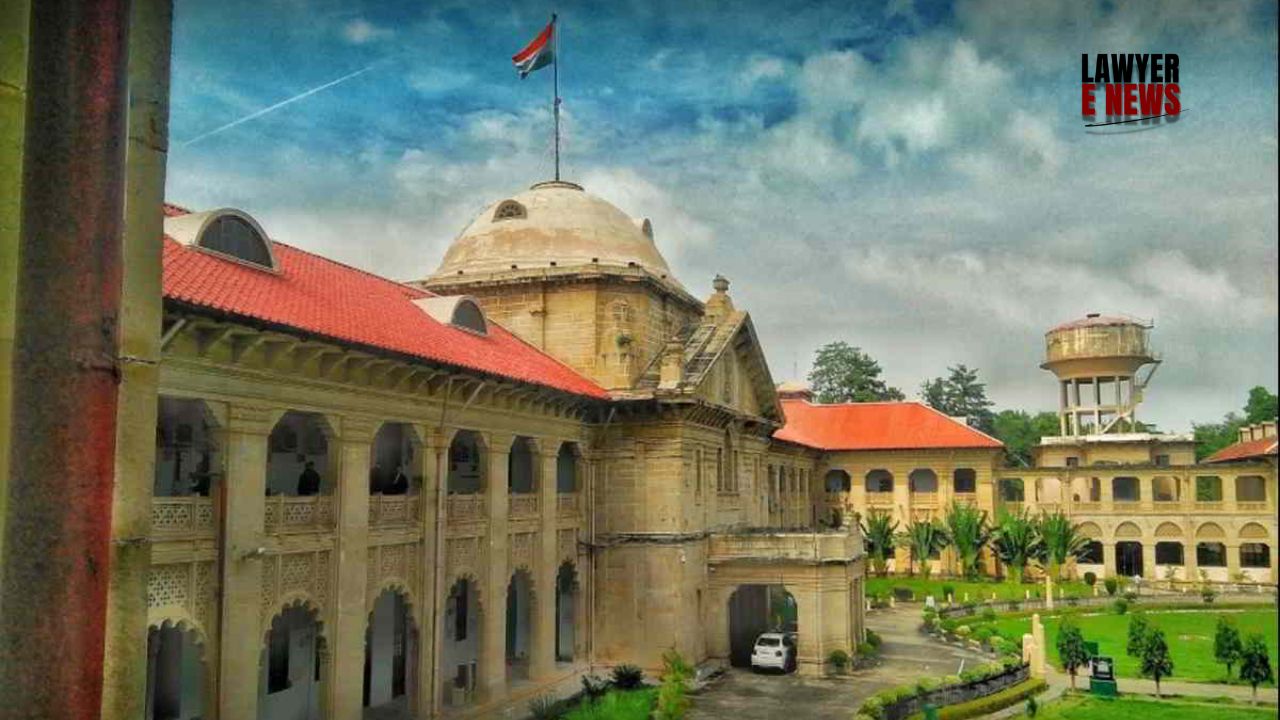-
by Admin
15 February 2026 5:01 PM



In a significant judgment, the Allahabad High Court has overturned a lower appellate court’s decree that granted an injunction in favor of the plaintiff in a property dispute. The decision, delivered by Justice Kshitij Shailendra, underscores the legal implications of a widow’s remarriage on her rights to her deceased husband’s property, invoking the Hindu Widow’s Remarriage Act of 1856.
The case involves a property dispute over land originally owned by Algu, a deceased family member. The plaintiff, Deena Nath, claimed ownership and sought to restrain the defendants from interfering with his possession of the disputed land. The defendants, Hari, Doodh Nath, Smt. Dhanauti, and Ram Daras, contended that the widow, Bhagirathia, remarried Mahadeo and thus lost her rights to Algu’s property. The trial court initially dismissed the suit, but the first appellate court granted an injunction in favor of Deena Nath, prompting the defendants to file a second appeal.
Justice Shailendra referenced Section 2 of the Hindu Widow’s Remarriage Act, 1856, which stipulates that a widow loses her rights in her deceased husband’s property upon remarriage. "All rights and interests which any widow may have in her deceased husband’s property... shall upon her remarriage cease and determine as if she had then died," the Act states. The court held that Bhagirathia's remarriage to Mahadeo in 1919 effectively ended her rights in Algu’s estate, which should have passed to Algu’s legal heirs.
The court found that Deena Nath failed to provide sufficient evidence to substantiate his claim of possession and ownership derived through an alleged relationship between Bhagirathia and his father, Hira. "A plaintiff cannot get strength from the defence case, but has to succeed on his own legs and merits of his claim," Justice Shailendra noted.
The court emphasized that proper parties, i.e., natural successors of Algu, were not impleaded in the suit. Without including Algu’s direct heirs or establishing the plaintiff’s direct link to Algu’s estate, the suit for injunction was deemed insufficient.
The judgment elaborated on the principles for granting an injunction, referencing the Supreme Court’s ruling in Anathula Sudhakar vs P. Buchi Reddy, which outlines that a suit for injunction involving immovable property must adequately address issues of title and possession. The High Court found that Deena Nath’s case lacked the necessary evidence and proper legal standing to support his claim for an injunction.
Justice Shailendra remarked, "The widow shall, upon her remarriage, cease to have any right in respect of her deceased husband’s property and she would be treated as dead soon after her second marriage."
The Allahabad High Court’s decision to dismiss the plaintiff’s suit for injunction reaffirms the legal principle that a widow’s remarriage nullifies her rights in her deceased husband's property. By setting aside the lower appellate court’s decree, the judgment underscores the necessity of proper party inclusion and solid evidence in property disputes. This ruling is expected to influence similar cases, emphasizing adherence to the Hindu Widow’s Remarriage Act and proper procedural conduct in civil suits.
Date of Decision: 30.07.2024
Smt. Laxminiya vs. Deena Nath
